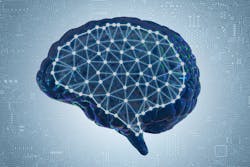AI approach may help detect Alzheimer’s disease from routine brain imaging tests
Although investigators have made strides in detecting signs of Alzheimer’s disease using high-quality brain imaging tests collected as part of research studies, a team at Massachusetts General Hospital (MGH) recently developed an accurate method for detection that relies on routinely collected clinical brain images. The advance could lead to more accurate diagnoses.
For the study, which is published in PLOS ONE, Matthew Leming, PhD, a research fellow at MGH’s Center for Systems Biology and an investigator at the Massachusetts Alzheimer’s Disease Research Center, and his colleagues used deep learning—a type of machine learning and artificial intelligence that uses large amounts of data and complex algorithms to train models.
In this case, the scientists developed a model for Alzheimer’s disease detection based on data from brain magnetic resonance images (MRIs) collected from patients with and without Alzheimer’s disease who were seen at MGH before 2019.
Next, the group tested the model across five datasets—MGH post-2019, Brigham and Women’s Hospital pre- and post-2019, and outside systems pre- and post-2019—to see if it could accurately detect Alzheimer’s disease based on real-world clinical data, regardless of hospital and time.
Overall, the research involved 11,103 images from 2,348 patients at risk for Alzheimer’s disease and 26,892 images from 8,456 patients without Alzheimer’s disease. Across all five datasets, the model detected Alzheimer’s disease risk with 90.2% accuracy.
The model used an uncertainty metric to determine whether patient data were too different from what it had been trained on for it to be able to make a successful prediction.

